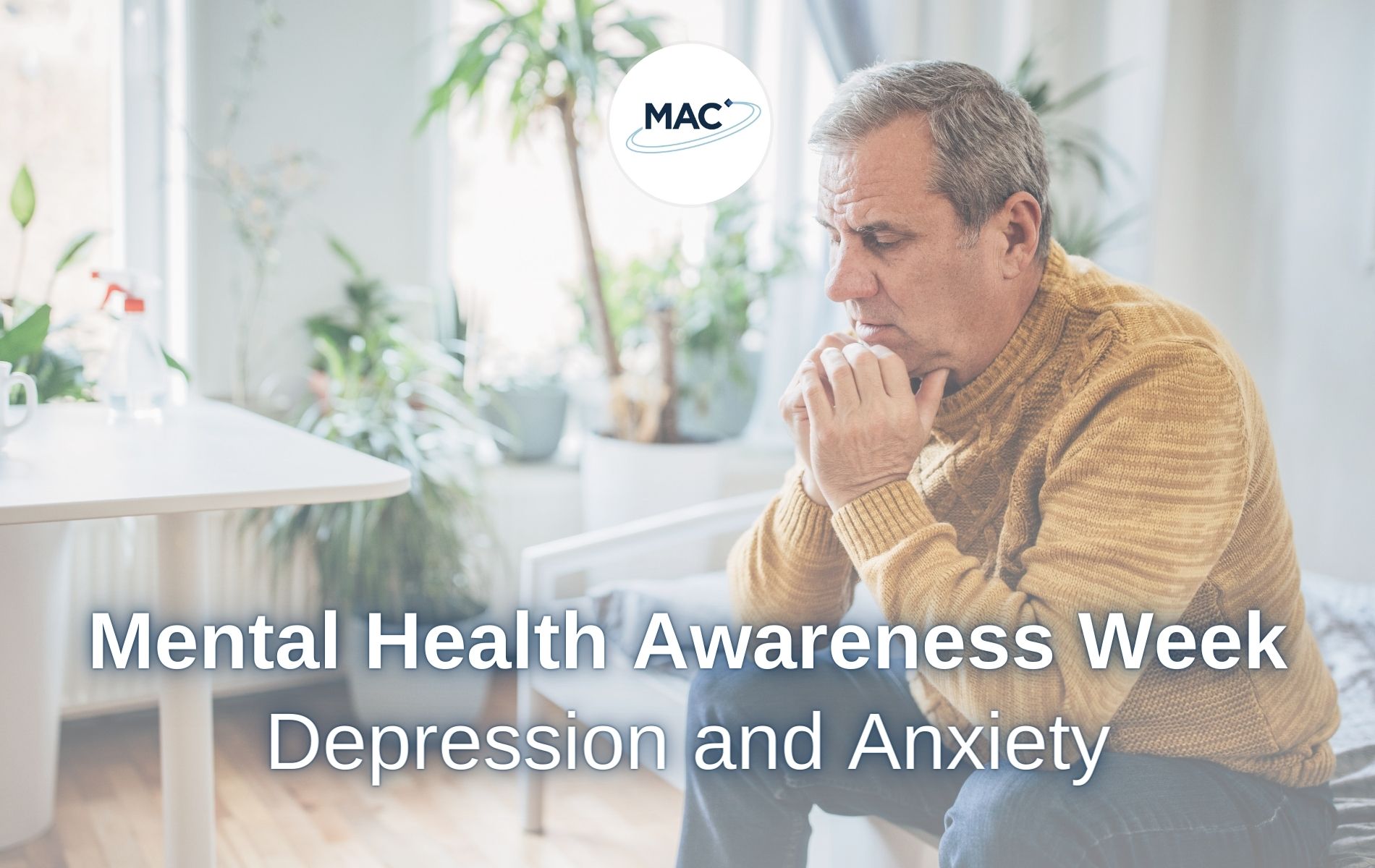Depression and anxiety are two distinct mental health conditions, but they often occur together. While depression is primarily characterized by feelings of sadness, hopelessness, and lack of interest in activities, anxiety is characterized by excessive worry, fear, and apprehension. However, depression can also cause feelings of anxiety, and the two conditions can interact in complex ways.
Organised by the Mental Health Foundation, this week is Mental Health Awareness Week. The theme of this year’s awareness week is anxiety, and we want to raise awareness on how other mental health conditions can cause feelings of anxiety. Anxiety can come up in everyone’s lives during stressful times, however, for people who are living with mental health conditions, such as depression, they can be more susceptible to experiencing intense feelings of anxiety.
Mixed anxiety and depression is Britain’s most common mental health disorder, with 7.8% of people meeting the criteria for diagnosis.
One way depression can cause anxiety is through the physical symptoms of the condition. Many people with depression experience physical symptoms such as fatigue, insomnia, and changes in appetite, which can lead to feelings of anxiety or panic. For example, someone with depression may feel overwhelmed and exhausted by the simplest tasks, such as getting out of bed, leading to anxiety about their ability to handle daily life.
Another way depression can cause anxiety is through negative thinking patterns. Depression is often accompanied by negative thoughts and beliefs about oneself, the world, and the future, such as feeling worthless or believing that nothing will ever get better. These negative thoughts can trigger feelings of anxiety and worrying individuals about their future or feel helpless to change their circumstances.
Additionally, depression can cause social isolation and difficulty with interpersonal relationships, which can also cause feelings of anxiety. People with depression may withdraw from social activities, working environments or feel unable to connect with others, leading to feelings of loneliness and anxiety about their ability to form meaningful relationships. Mixed anxiety and depression have been estimated to cause one-fifth of days lost from work in Britain.
This difficulty with interpersonal relationships and isolation due to depression can manifest itself in a self-perpetuating cycle, causing further anxiety. For example, someone with depression may feel anxious about leaving the house or socializing with others, leading to avoidance behaviours. These avoidance behaviours can then reinforce feelings of depression and anxiety, as individuals may feel guilty or ashamed about their inability to engage in typical activities.
For those living with depression, they may seek out treatment for their condition. Typically, doctors may prescribe a combination of antidepressants to help alleviate symptoms as well as talking therapies such as cognitive behavioural therapy (CBT). One third of people treated for depression, however, find that their treatment does not work. New research is currently underway investigating psychedelic-assisted therapies.
MAC Clinical Research is looking for patients to participate in a clinical trial for an investigational drug for depression, who are still feeling unwell despite currently taking an SSRI antidepressant or are no taking an antidepressant.
The clinical trial will run at MAC’s clinics in Greater Manchester and Merseyside. You may receive up to £1550 for taking part in this study.
For more information on the clinical trial and how you can get involved, visit MAC’s Depression Research Page.




